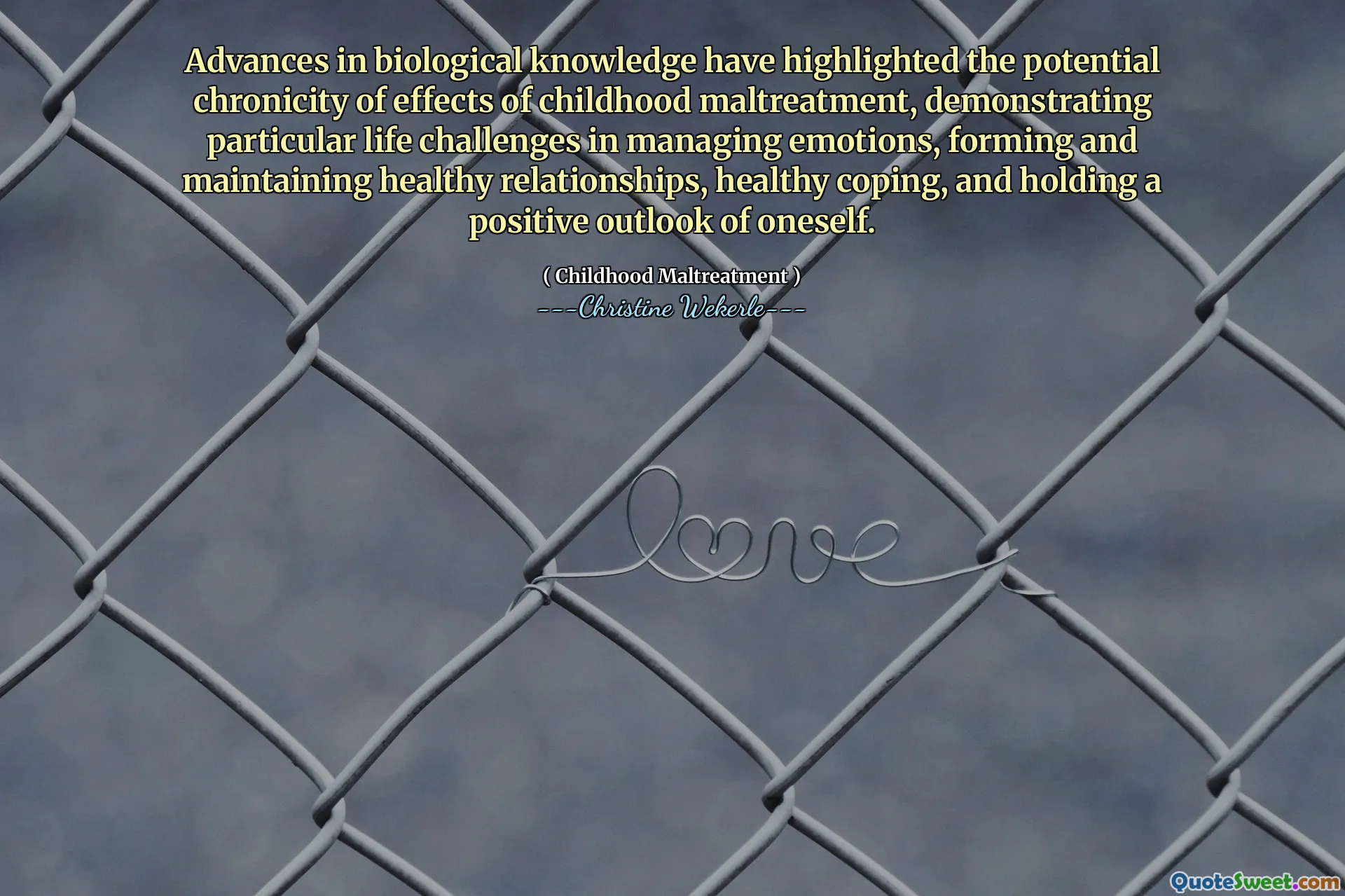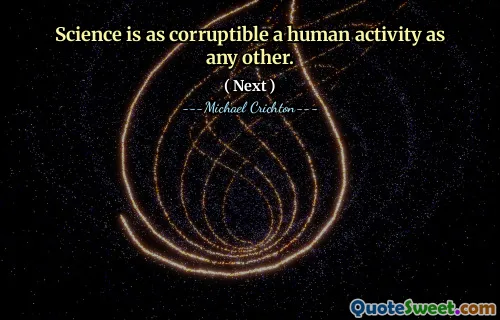
Advances in biological knowledge have highlighted the potential chronicity of effects of childhood maltreatment, demonstrating particular life challenges in managing emotions, forming and maintaining healthy relationships, healthy coping, and holding a positive outlook of oneself.
The quote underscores the profound and lasting impacts that childhood maltreatment can have on an individual’s life. Recent scientific advances have shed light on how early adverse experiences can become embedded within biological systems, influencing a person's emotional regulation, social interactions, and overall mental health well into adulthood. These enduring effects often manifest as difficulties in managing intense emotions, which can lead to a cycle of emotional turmoil and heightened vulnerability in stress-related situations. Moreover, the challenges extend beyond internal struggles to relational dynamics; individuals who have endured childhood maltreatment might find it harder to trust others, develop and sustain intimate relationships, or establish healthy boundaries. These relational difficulties can further exacerbate feelings of loneliness and alienation.
Healthy coping mechanisms are often compromised due to the dysregulation caused by early trauma. Without proper intervention or support, these individuals may resort to maladaptive strategies, such as substance abuse or self-harm, which can hinder their recovery and growth. The excerpt also emphasizes the importance of fostering a positive self-image. Childhood maltreatment often leaves scars that distort self-perception, fostering feelings of shame, guilt, or worthlessness. Recognizing these biological and psychological consequences signifies the importance of trauma-informed care, early intervention, and supportive environments that can promote healing. It calls for a compassionate societal approach to support survivors by understanding the deep-seated roots of their struggles, which are often rooted in complex, biological, and psychological factors.
Understanding these ramifications is vital for professionals, caregivers, and society at large to develop nuanced, empathetic strategies aimed at fostering resilience and promoting recovery among those affected by childhood maltreatment.


